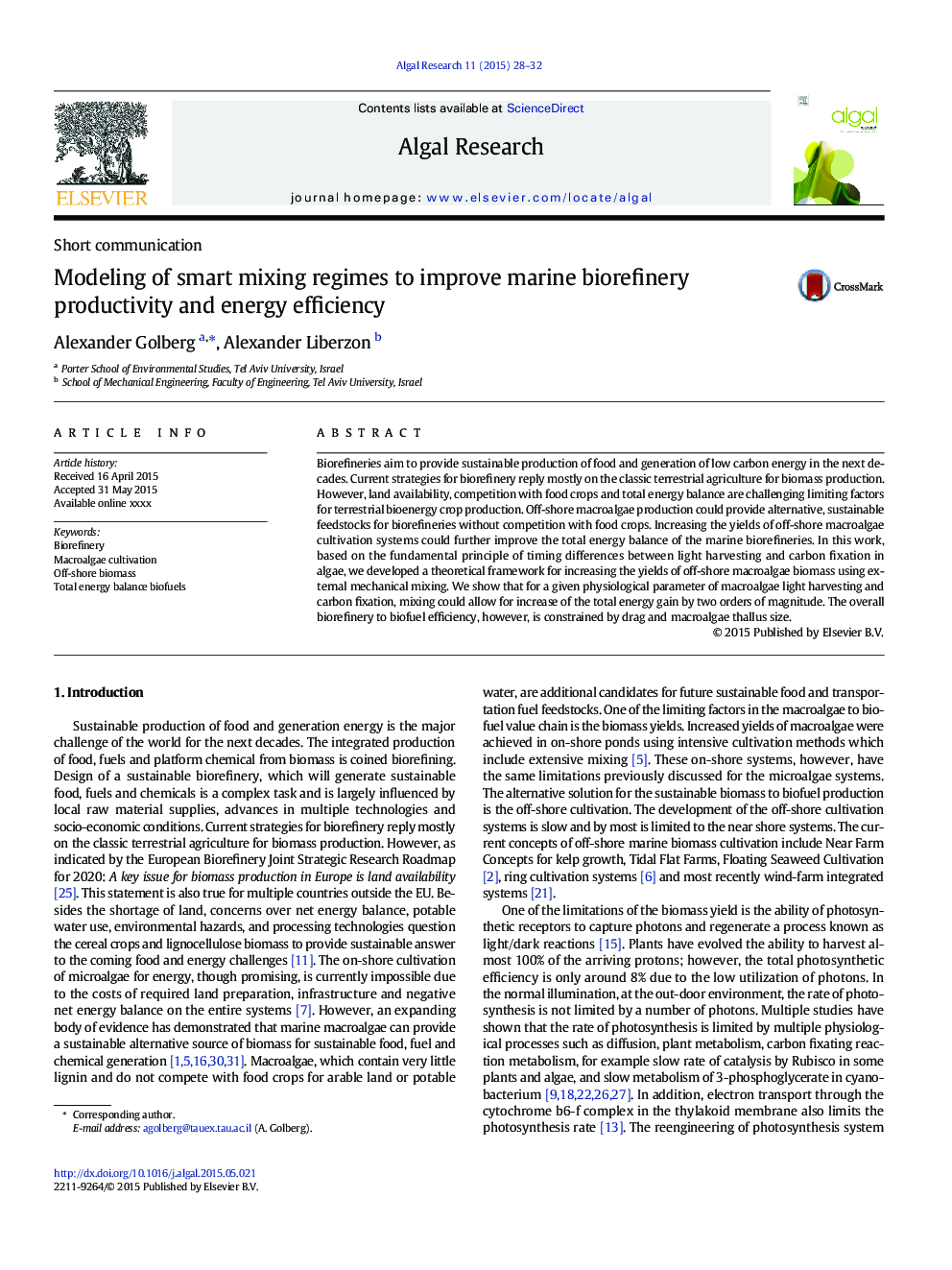| Article ID | Journal | Published Year | Pages | File Type |
|---|---|---|---|---|
| 8088045 | Algal Research | 2015 | 5 Pages |
Abstract
Biorefineries aim to provide sustainable production of food and generation of low carbon energy in the next decades. Current strategies for biorefinery reply mostly on the classic terrestrial agriculture for biomass production. However, land availability, competition with food crops and total energy balance are challenging limiting factors for terrestrial bioenergy crop production. Off-shore macroalgae production could provide alternative, sustainable feedstocks for biorefineries without competition with food crops. Increasing the yields of off-shore macroalgae cultivation systems could further improve the total energy balance of the marine biorefineries. In this work, based on the fundamental principle of timing differences between light harvesting and carbon fixation in algae, we developed a theoretical framework for increasing the yields of off-shore macroalgae biomass using external mechanical mixing. We show that for a given physiological parameter of macroalgae light harvesting and carbon fixation, mixing could allow for increase of the total energy gain by two orders of magnitude. The overall biorefinery to biofuel efficiency, however, is constrained by drag and macroalgae thallus size.
Keywords
Related Topics
Physical Sciences and Engineering
Energy
Renewable Energy, Sustainability and the Environment
Authors
Alexander Golberg, Alexander Liberzon,
